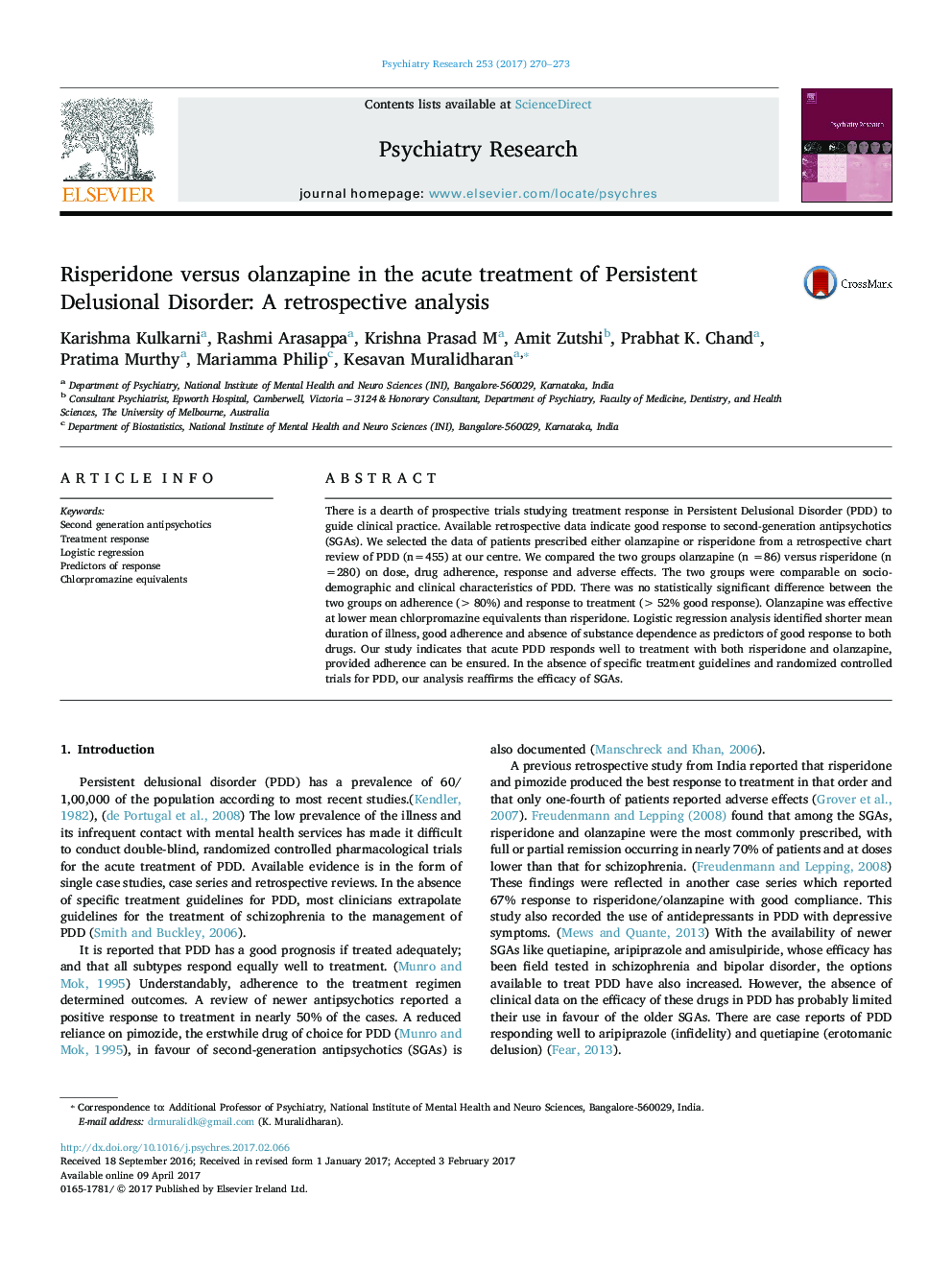| Article ID | Journal | Published Year | Pages | File Type |
|---|---|---|---|---|
| 4933303 | Psychiatry Research | 2017 | 4 Pages |
Abstract
There is a dearth of prospective trials studying treatment response in Persistent Delusional Disorder (PDD) to guide clinical practice. Available retrospective data indicate good response to second-generation antipsychotics (SGAs). We selected the data of patients prescribed either olanzapine or risperidone from a retrospective chart review of PDD (n=455) at our centre. We compared the two groups olanzapine (n =86) versus risperidone (n =280) on dose, drug adherence, response and adverse effects. The two groups were comparable on socio-demographic and clinical characteristics of PDD. There was no statistically significant difference between the two groups on adherence (>80%) and response to treatment (>52% good response). Olanzapine was effective at lower mean chlorpromazine equivalents than risperidone. Logistic regression analysis identified shorter mean duration of illness, good adherence and absence of substance dependence as predictors of good response to both drugs. Our study indicates that acute PDD responds well to treatment with both risperidone and olanzapine, provided adherence can be ensured. In the absence of specific treatment guidelines and randomized controlled trials for PDD, our analysis reaffirms the efficacy of SGAs.
Keywords
Related Topics
Life Sciences
Neuroscience
Biological Psychiatry
Authors
Karishma Kulkarni, Rashmi Arasappa, Krishna Prasad M, Amit Zutshi, Prabhat K. Chand, Pratima Murthy, Mariamma Philip, Kesavan Muralidharan,
